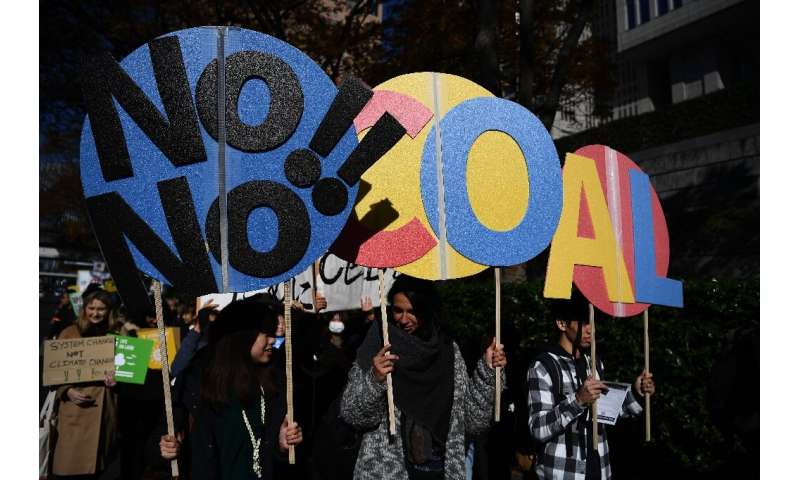Japan’s Toshiba retreats from coal-fired power stations
NOVEMBER 11, 2020

Japanese engineering giant Toshiba will not build any more coal-fired power plants and will shift to renewable energy in a bid to reduce greenhouse emissions, the company’s president said Wednesday.
But none of its existing coal-power construction projects will be scrapped, said the firm, which has around 10 underway worldwide.
“We will stop accepting new orders to build coal-fired plants, and seek to cut greenhouse gas emissions by 50 percent by 2030,” Toshiba’s president Nobuaki Kurumatani told reporters.
The company will increase investment in renewable energy, he said—including infrastructure for offshore wind-power and solar-power facilities, and research and development in related fields.
The announcement comes just weeks after Prime Minister Yoshihide Suga set a 2050 deadline for the world’s third-largest economy to become carbon-neutral.
Suga’s target date firmed up the country’s previous climate-change commitments, as it plays catch-up with similar pledges made by other major economies.
Kurumatani said business opportunities could arise from the Paris climate accord, which US President-elect Joe Biden has vowed to rejoin after Donald Trump’s withdrawal.
As well as selling mega solar and hydropower plants, “we plan to pour our resources into wind power and to produce cutting-edge windmills”, the Toshiba boss said.
Germany’s Siemens Energy and General Electric of the US—also major players in the energy sector—have made similar commitments to stop building new coal-fired power stations.

Green growth
Greenpeace welcomed the move, with its climate and energy campaigner Daniel Read calling the news “heartening” but emphasising that “much work still remains”.
“A complete separation from coal, both new and existing projects, and moving wholly to renewables is the only option that makes long-term sense, both financially and environmentally,” he said in a statement.
Read warned against relying on nuclear power to reach net-zero emissions by 2050, saying it is not a “viable alternative”.
Japan, which is a signatory to the Paris agreement, has struggled to cut carbon emissions after shutting down reactors after the 2011 meltdown at the Fukushima nuclear power plant.
Reliance on fossil fuels such as coal increased after that as public anger over the accident pushed all of the country’s reactors offline temporarily.
Japan’s 140 coal-fired power plants provide nearly a third of its total electricity generation.
Coal is the second-biggest power-generation method behind LNG-fired plants, which provide 38 percent of the nation’s needs.
On Wednesday, top government spokesman Katsunobu Kato said that working towards carbon neutrality would benefit both the economy and environment.
“Taking measures to address global warming no longer fetters growth, but is a source of competition for companies,” he said.
Source:Japan’s Toshiba retreats from coal-fired power stations


